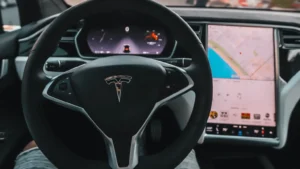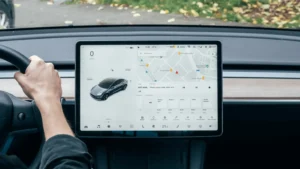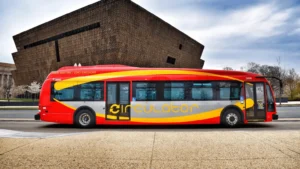The global Connected Car Market is projected to surpass USD 194.55 billion by 2033. Rising demand for connected cars across industries such as automotive, insurance, logistics, transportation, and healthcare, combined with high disposable incomes in both emerging and developed regions, is expected to fuel substantial growth in the Connected Car Market. North America has emerged as a leading region with vast opportunities, supported by the high spending power of consumers and their growing preference for technologically advanced vehicles. Increasing interest in navigation systems, driving assistance, and advanced safety features is propelling demand, as connected cars are perceived as safer and less accident-prone. This shift in consumer behavior is particularly noticeable in U.S. states like California, New York, Texas, and Florida, where connected vehicles are gaining strong traction.
Another major factor accelerating the Connected Car Market is the adaptability of connected vehicles to meet evolving consumer and industry-specific demands. Manufacturers are actively adopting innovative strategies by integrating artificial intelligence (AI) and other advanced technologies into their vehicles. For example, Ford partnered with Google to incorporate the Android operating system into its cars, offering customers enhanced services such as real-time traffic updates and in-car applications. At the same time, companies are addressing rising concerns about data security by focusing on cybersecurity. Ford, a key player in the Connected Car Market, has collaborated with cybersecurity specialists like Upstream Security and SafeRide Technologies to strengthen vehicle security. Growing consumer interest in technologically advanced, safer, and more reliable vehicles is driving the Connected Car Market toward a promising growth trajectory in the forecast period.
Companies in the Connected Car Market are also expanding their global presence through mergers, acquisitions, partnerships, long-term contracts, and service agreements. For instance, in January 2021, Kia entered a collaboration with Uber to develop electric vehicles tailored for ride-hailing services. Through this partnership, Kia provides Uber drivers access to its connected cars via dealerships while also working with Uber to establish dedicated charging infrastructure. Additionally, both companies are exploring new mobility solutions and innovative ways to utilize connected car technology to enhance the ride-hailing experience. This initiative underscores a collective move toward green transportation and reducing carbon emissions while accelerating the adoption of connected and electric vehicles in the Connected Car Market.
According to insights from CXOs and primary research, the combination of rising disposable incomes and the rapid adoption of advanced technologies across both developed and developing economies is expected to significantly impact the Connected Car Market. Consumers’ desire for safer, more entertaining, and environmentally friendly commutes is leading them to allocate more of their disposable income to connected cars. Automotive giants are leveraging eco-friendly solutions and unique travel experiences as their key differentiators, further boosting competition in the Connected Car Market.
The Connected Car Market is evaluated across regions including North America, Europe, Asia-Pacific, Latin America, and the Middle East & Africa. Among these, the North American region is projected to secure the highest market share, followed by Europe, Asia-Pacific, Latin America, and the Middle East & Africa. Factors such as rapid adoption of safety innovations, high disposable incomes, advanced technological infrastructure, and the presence of leading industry players are driving growth in North America. Key companies operating in the Connected Car Market include AT&T Inc., Bosch, Continental A.G., Daimler A.G., Ford Motor Company, Hyundai Motor Company, Kia Motors Corporation, Nissan Motor Company, TomTom International N.V., and Toyota Motor Corporation.
Click here to read complete article








